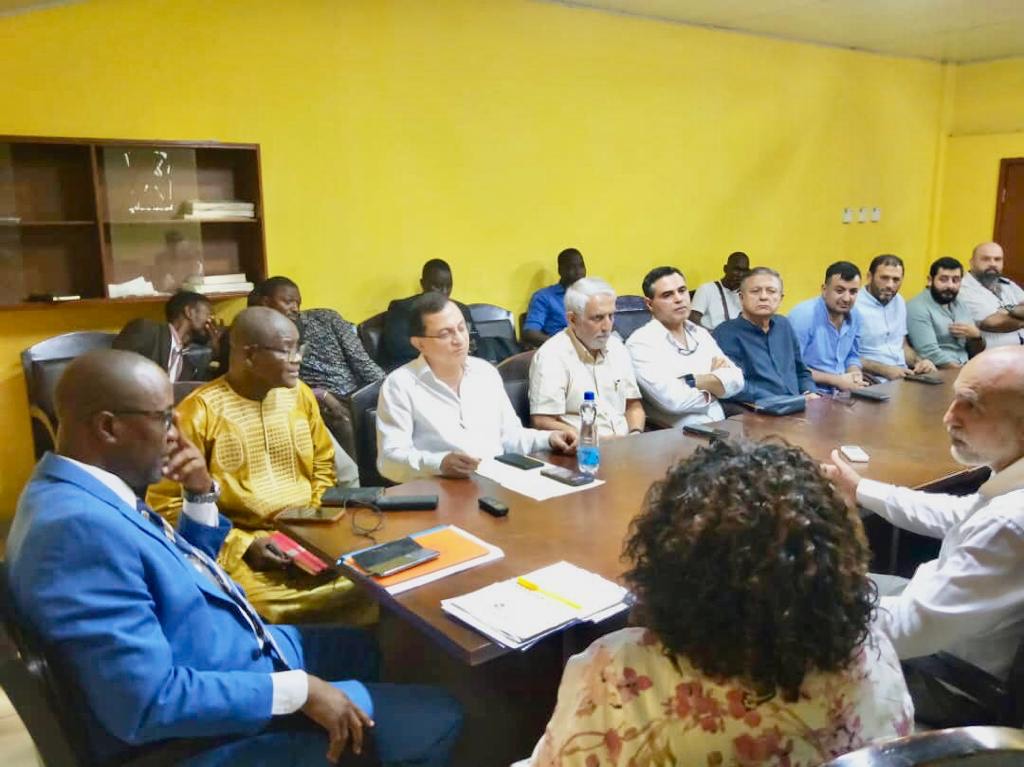As discussions on the increment of work permit fees for foreign workers/expatriate staff in Sierra Leone continue, the Minister of Employment, Labour and Social Security, Mr Mohamed Rahman Swaray, met with foreign business owners, two days after he met with International Non-Governmental Organizations operating in the country. The business owners had requested to meet with the Minister to appeal for a reduction of the stipulated work permit cost.
It could be recalled that the Ministry recently sent out a public notification of the increment, which will subsequently affect foreign workers/expatriate staff and institutions employing foreign workers/expatriate staff in Sierra Leone. This, the Minister had earlier said, was aimed at securing more jobs for Sierra Leoneans, to complement President Bio’s agenda for the creation of 500,000 jobs for citizens by 2028.
Speaking on behalf of the employers, Mr Kishore Shankerdas, Managing Director of G. Shankerdas & Sons, pleaded for the stipulated cost of the work permit to be further reviewed and reduced. At this time of global instability, Mr Shankerdas said that it would be good if the increment was done gradually, as there already was an increase in everything else locally and internationally.
In his response, Mr Swaray said: “We understand your concerns and we appreciate you for putting them forward, though it is late already.” He explained that the decision to increase the cost of a work permit was not made in a day, adding that there were thorough consultations with the Ministry’s Tripartite Partners; The Sierra Leone Labour Congress and the Sierra Leone Employers’ Federation. He encouraged the employers to see the bigger picture and understand that the decision will benefit them in the long term. “Right now, it will be difficult, but it will reduce your cost and boost your businesses in the long term. The Government is very concerned about the sustainability and profitability of your businesses, which contributes hugely to addressing unemployment in the country. We want to encourage localization,” he explained further. He assured them that the increment was not a way to put foreign workers/expatriate staff out of their jobs, but to establish timelines for the transfer of skills and localization.
